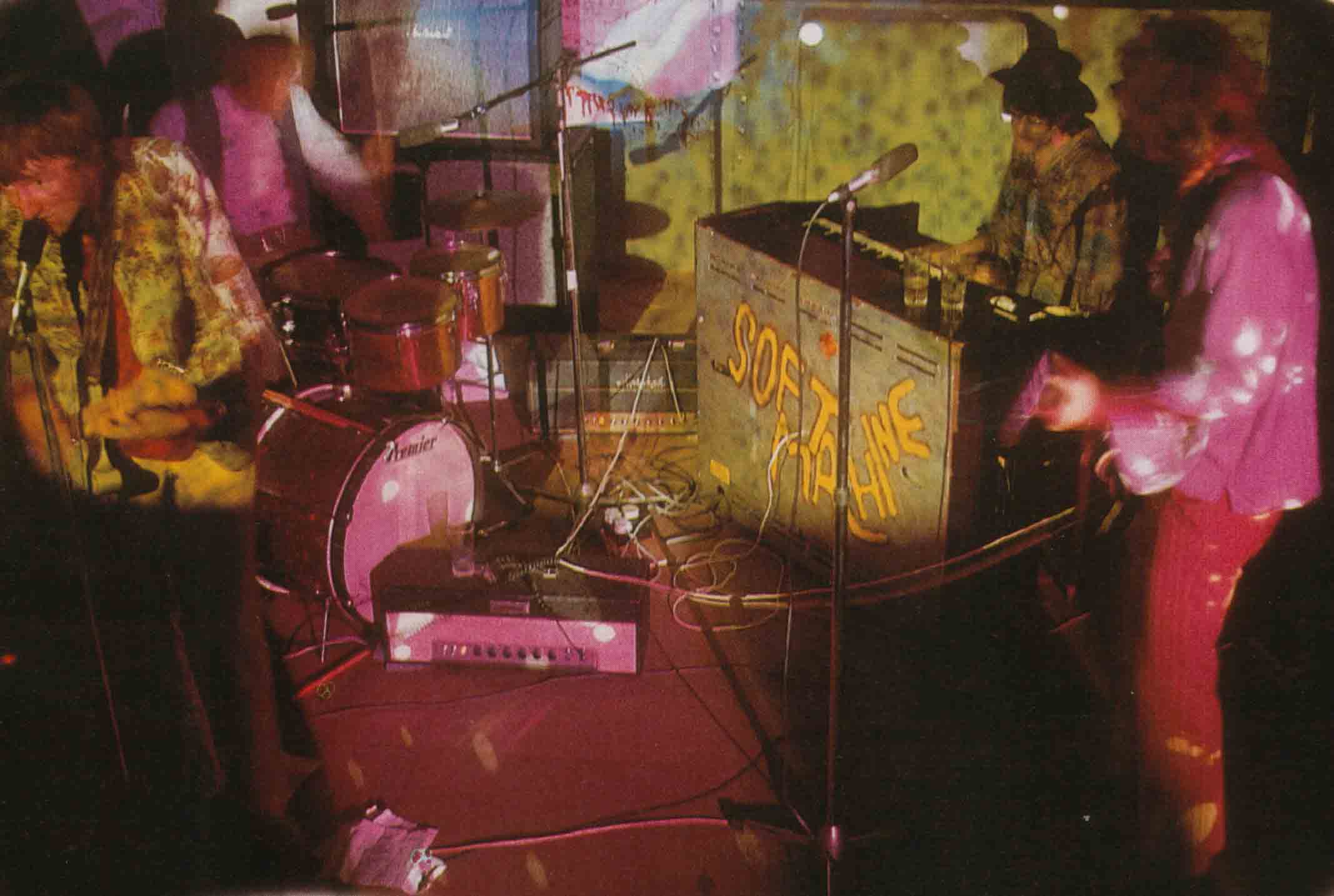Chapter One - Jet-Propelled Photographs (1967)
The Soft Machine, 1967
The year is 1967. Psychedelia is in full swing, The Beatles had begun working on their masterwork album Sgt. Pepper’s Lonely Hearts Club Band, and the clubs are a hotspot for acts providing a new sound for this new youth culture. Among the many bands to populate the clubs are The Soft Machine, formed in 1967 by and consisting of Daevid Allen on guitar and vocals, Kevin Ayers on bass and vocals, Mike Ratledge on keyboards, and Robert Wyatt on drums and vocals. The band mainly played in the UFO Club in London, along with fellow psychedelic rock pioneers, Pink Floyd, of whom became close friends with each other, especially Kevin Ayers and Pink Floyd’s guitarist Syd Barrett.
“We enjoyed seeing each other perform, sharing songwriting ideas, and we just really influenced each other musically.”
Kevin Ayers, 2006
Pink Floyd signing with EMI, 1967
When Pink Floyd signed a record contract with EMI in February 1967, Barrett insisted to their manager Andrew King on attempting to get The Soft Machine signed to the label as well. By then, the Softs had already put out a single on Polydor Records, Love Makes Sweet Music / Feelin’ Reelin’ Squeelin’, Side A produced by Chas Chandler, with Kim Fowley producing Side B. However, it was a one-off release, in which the band had no interest in continuing to work with Polydor.

The band was signed and EMI asked them to record another single, She’s Gone / We Know What You Mean, produced by Joe Boyd this time, which was released in April 1967. Despite only reaching number 30 in the singles charts, EMI commissioned a full album, produced by Giorgio Gomelsky at De Lane Lea Studios.

She's Gone/We Know What You Mean Single Cover - Columbia, 1967
“There was a rule at that time where you couldn’t really use the singles for albums, but Kevin somehow convinced them to let us use the single tracks for that album. Now why we did that is because we absolutely loathed the studio, and we wanted to just get it done with, in all honesty.”
Daevid Allen, 1997
Jet-Propelled Photographs


Side A:
Shooting at the Moon (2:32) (Kevin Ayers) [1]
Love Makes Sweet Music (2:27) (Ayers) [2]
You Don’t Remember (3:34) (Robert Wyatt, Daevid Allen) [1]
Memories (2:59) (Hugh Hopper) [1]
Clarence in Wonderland (4:18) (Ayers) [3]
She’s Gone (2:30) (Ayers) [4]
Side B:
We Know What You Mean (3:11) (Ayers) [5]
When I Don’t Want You (2:48) (Hopper) [1]
Feelin’ Reelin’ Squeelin’ (2:49) (Ayers) [2]
I’d Rather Be With You (3:40) (Ayers) [1]
That’s How Much I Need You Now (2:26) (Wyatt) [1]
Fred the Fish (3:00) (Allen) [6]
Released: August 23rd, 1967
Top position in UK charts: #20
Top position in US charts: N/A
Track sources:
[1] - Jet-Propelled Photographs - 1972
[2] - The Soft Machine (Remastered and Expanded) - 2009
[3] - Custom Mix - 2020
[4] - Triple Echoes - 1977
[5] - Live At The BBC 1967 - 1971 - 2003
[6] - Daevid Allen Trio - Live 1963 - 2004
Despite low album sales, the album managed to peak at #20 on the UK charts for a week. It received somewhat positive reviews upon release, with rampant comparisons to Pink Floyd’s The Piper at the Gates of Dawn. In later years, the album would develop a cult following with people praising it for its pop consciousness with a psychedelic whimsy twist to it.

Soft Machine preforming at St Tropez, 1967
During July and August, Gomelsky booked the band several shows along the Cotê d’Azur, which led to an invitation to perform at the trendy venue Nuit Psychédélique, in which they performed a 40-minute version of their song We Did It Again. This made them popular with the Parisian “in” crowd, resulting in invitations to appear in television shows and at the Paris Bienalle art festival.

Daevid Allen, 1967
Following their return from France, guitarist Allen (an Australian) was denied re-entry to the United Kingdom due to visa complications. The band carried on nonetheless as a trio, with Allen returning to France, later to form Gong.

Comments
Post a Comment